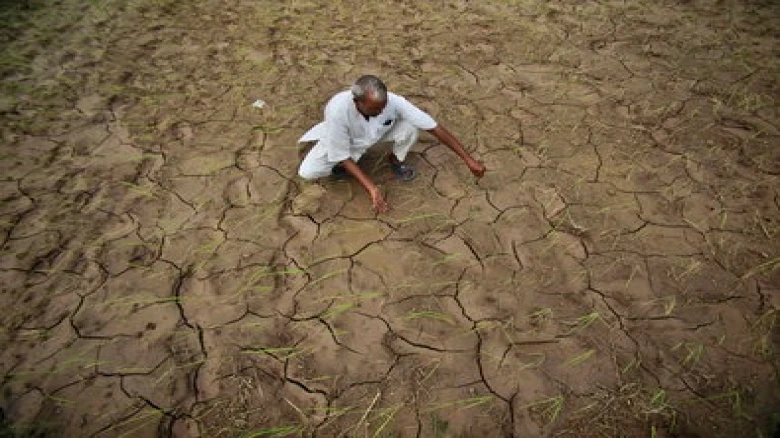August 2024 was the scheduled date for the next hearing in this lawsuit.........
Digital desk: The Supreme Court has acknowledged that the Constitution contains a specific basic right against the harmful impacts of climate change, which is a much-felt but less stated right.
“It is yet to be articulated that the people have a right against the adverse effects of climate change. This is perhaps because this right and the right to a clean environment are two sides of the same coin. As the havoc caused by climate change increases year by year, it becomes necessary to articulate this as a distinct right. It is recognized by Articles 14 (right to equality) and 21 (right to life),” the Supreme Court observed in a judgment released on April 6.
The ruling was made in a dispute involving the Great Indian Bustard species, which is endangered.
The problem faced by the bird species whose natural habitat and flight patterns collide with electricity transmission lines in Gujarat and Rajasthan was addressed by a decision given in open court on March 21 that established an expert committee.
August 2024 was the scheduled date for the next hearing in this lawsuit. On the other hand, the court uploaded a judgment over the weekend without warning. The judgment's language primarily devotes several lines to discussing climate change and its challenges.
Chief Justice D.Y. Chandrachud stated that the rights to equality and life cannot be completely realized without a stable, clean environment, drawing a connection between the right against climate change and Articles 21 and 14.
“The right to health (which is a part of the right to life under Article 21) is impacted due to factors such as air pollution, shifts in vector-borne diseases, rising temperatures, droughts, shortages in food supplies due to crop failure, storms, and flooding. The inability of underserved communities to adapt to climate change or cope with its effects violates the right to life as well as the right to equality… If climate change and environmental degradation lead to acute food and water shortages in a particular area, poorer communities will suffer more than richer ones,” the judgment said.
The court also emphasized the links between the rights to development, gender equality, indigenous rights, and health which are among the human rights that are directly impacted by climate change.
According to the ruling, having a safe and healthy environment free from the negative consequences of climate change is a "fundamental human right."
“Violations of the right to a healthy environment can reverberate across numerous rights domains, including the right to life, personal integrity, health, water, and housing, as well as procedural rights such as information, expression, association, and participation… Unequal energy access disproportionately affects women and girls due to their gender roles and responsibilities such as through time spent on domestic chores and unpaid care work,” the court noted.
The court emphasized how crucial solar energy would be in halting the negative effects of climate change.
Three factors made India's transition to solar power imperative: (1) the country is expected to provide 25% of the increase in global energy consumption over the next two decades; Two, the urgent need for greener energy sources is highlighted by the extreme air pollution; Three diminishing yearly precipitation and reducing groundwater levels.
The court stated that the nation has a large amount of solar energy potential and that it received roughly 5,000 trillion kWh of solar energy annually.
In India, solar photovoltaic power provided enormous scalability, enabling efficient solar energy harvesting.
India aims to be net zero by 2070, and its target of 500 GW of non-fossil power generation capacity by 2030 is in line with that ambition.
Eight,269 MW of the 9,943 MW of additional generation capacity in 2023–2024 will come from non-fossil fuel sources. India has the fourth-largest installed capacity of renewable energy, according to the Renewable Energy Statistics 2023 published by the International Renewable Energy Agency (IRENA).
In addition to being a strategic energy aim, India's commitment to switching to non-fossil fuels is a basic requirement for environmental preservation. Investing in renewable energy has numerous socio-economic advantages in addition to addressing these pressing environmental issues.
India improves its energy security by reducing its reliance on erratic fossil fuel markets and lowering the dangers related to energy constraints by switching to renewable energy sources. Furthermore, the use of renewable energy technology contributes to the reduction of air pollution, which enhances public health and lowers healthcare expenses.
India does not have any sort of legislation that addresses climate change or related issues, even though government policies, rules, and regulations acknowledge the negative effects of climate change and work to mitigate them. However, the Indian people still have a right to be protected from the negative consequences of climate change.

Leave A Comment